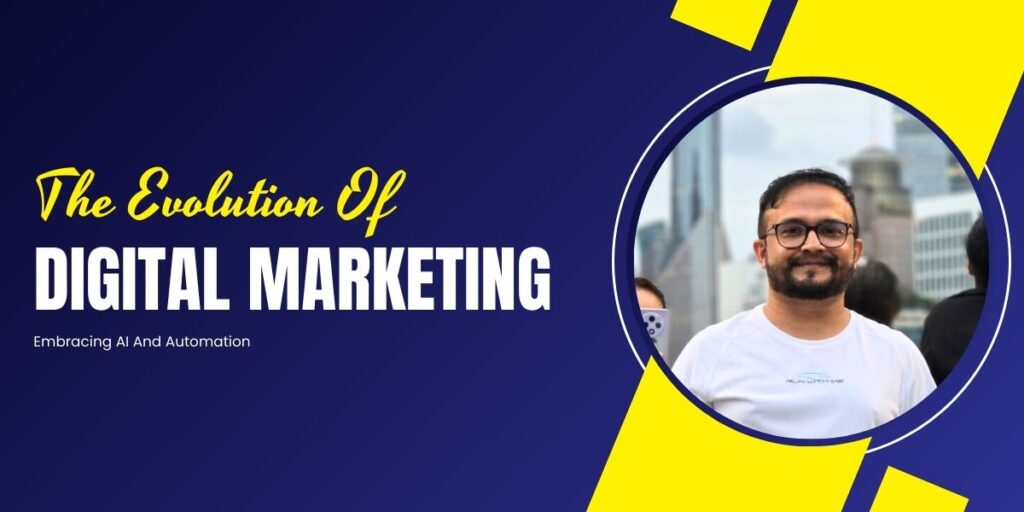Digital marketing has undergone a profound transformation over the years, evolving from simple email campaigns and banner ads to sophisticated, data-driven strategies. Among the most significant advancements in recent years are the integration of artificial intelligence (AI) and automation. These technologies have revolutionized how businesses connect with their audiences, enhancing efficiency, personalization, and overall effectiveness. This article explores the journey of digital marketing and how AI and automation are shaping its future.
The Early Days of Digital Marketing
The inception of digital marketing can be traced back to the early 1990s when the internet began gaining popularity. During this time, marketers relied on basic tools such as email and static banner advertisements. The focus was primarily on reaching as many people as possible, often with little regard for targeting or personalization.
As search engines like Google emerged, the emphasis shifted to search engine optimization (SEO) and pay-per-click (PPC) advertising. These innovations enabled businesses to improve visibility and attract more qualified leads. However, the lack of advanced data analytics meant that campaigns were often based on intuition rather than insight.
The Rise of Data-Driven Marketing
The 2000s ushered in a new era of data-driven marketing. With the expansion of online entertainment stages and progressed examination instruments, advertisers accessed extraordinary measures of buyer information. This allowed for more targeted campaigns, tailored messaging, and improved ROI.
However, as the volume of data grew, so did the complexity of managing and interpreting it. Marketers began seeking more efficient ways to process and utilize information, paving the way for AI and automation.
AI and Automation: A Game-Changer
AI and automation have fundamentally altered the digital marketing landscape, introducing capabilities that were previously unimaginable. Here are some of the key ways these technologies are transforming the industry:
1. Enhanced Personalization
AI empowers advertisers to convey exceptionally customized encounters to buyers. By analyzing vast amounts of data, AI can identify patterns and preferences, allowing businesses to tailor their messaging to individual users. For example, AI-powered recommendation engines on platforms like Amazon and Netflix suggest products and content based on past behavior, increasing engagement and conversions.
2. Improved Customer Insights
Machine learning algorithms can process and analyze complex datasets much faster than humans, providing marketers with actionable insights. These insights help businesses understand customer behavior, preferences, and pain points, enabling them to make data-driven decisions.
3. Automation of Routine Tasks
Robotization smoothes out dull errands, for example, email crusades, web-based entertainment posting, and lead supporting. Tools like HubSpot, Marketo, and Mailchimp allow marketers to create workflows that automatically execute tasks based on predefined triggers. This saves time and ensures consistency across campaigns.
4. Chatbots and Virtual Assistants
Chatbots and virtual assistants, powered by AI, have become invaluable tools for enhancing customer service. These technologies can handle inquiries, provide recommendations, and even complete transactions, all while operating 24/7. Thusly, they further develop consumer loyalty and lessen functional expenses.
5. Predictive Analytics
Prescient examination utilizes artificial intelligence to figure future patterns and results in light of verifiable information. This capability allows marketers to anticipate customer needs, optimize budgets, and plan more effective campaigns. For instance, predictive analytics can help determine the best time to launch a campaign or identify high-value leads.
Challenges and Considerations
While AI and automation offer immense potential, they also present challenges that businesses must address:
- Data Privacy: With increasing scrutiny on data collection practices, businesses must ensure compliance with regulations like GDPR and CCPA.
- Integration: Implementing AI and automation tools requires significant investment and may necessitate overhauling existing systems.
- Human Oversight: Despite their capabilities, AI and automation are not infallible. Human oversight is essential to ensure ethical use and to address biases in algorithms.
The Future of Digital Marketing
The adoption of AI and automation in digital marketing is still in its early stages, and the potential for growth is enormous. Emerging technologies like natural language processing (NLP), augmented reality (AR), and blockchain are expected to further enhance digital marketing capabilities. For example, AR can create immersive experiences, while blockchain can improve transparency in advertising.
Additionally, as AI continues to advance, we may see even greater levels of personalization, predictive accuracy, and efficiency. Businesses that embrace these innovations will be better positioned to stay competitive in an ever-evolving digital landscape.
Conclusion
The evolution of digital marketing is a testament to the power of innovation and adaptability. From its humble beginnings to the AI-driven strategies of today, the field has consistently pushed boundaries to better serve businesses and consumers. By embracing AI and automation, marketers can unlock new possibilities, drive growth, and create meaningful connections with their audiences. As technology continues to evolve, so too will the opportunities for digital marketing to reach new heights.
